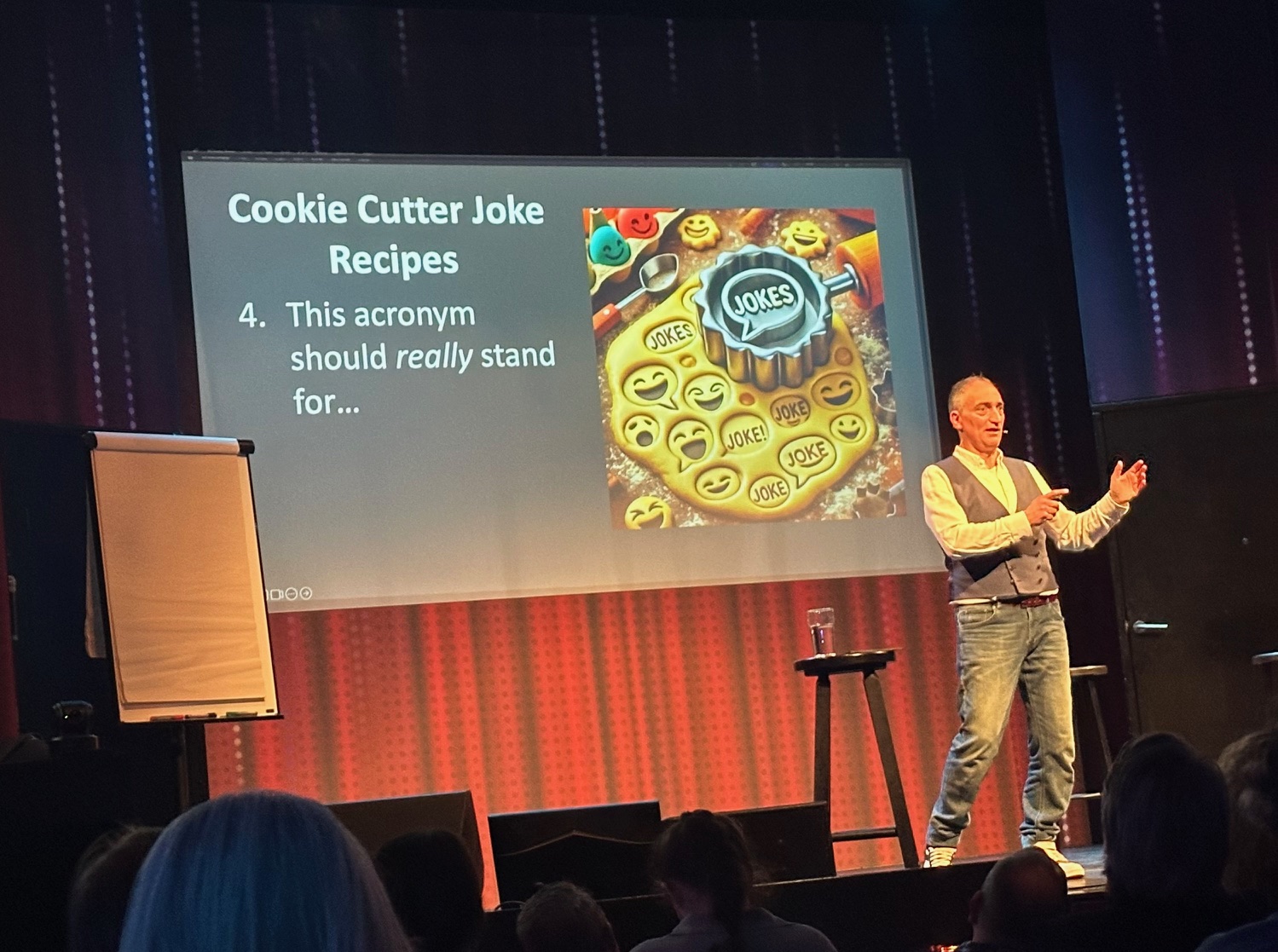Laughter is the best medicine, especially in the workplace
Lauren Comiteau
Just in time for World Laughter Day (May 4)—and when the globe is in need of a good guffaw—Boom Chicago’s Pep Rosenfeld makes the case why laughter is not only good for your soul, but good for business.
“I just make jokes all day,” comedian Pep Rosenfeld thought one soul-searching day backstage at a business talk on finding one’s purpose. “Am I wasting my whole life? Am I helping anybody?”
The Boom Chicago co-founder and director of content of Boom Chicago for Business regularly gives talks to organisations about how humour can make companies stronger and more fun. Convinced that laughter leads to a better workplace, he had an epiphany.
“When you laugh at work, your work is better,” he says. “And we spend a lot of time at work. So then it hit me: everybody could get a little bit funnier. I should write a book about it.”
The result? Work-Laugh Balance, his new book that seeks to help companies and employees boost productivity, engagement and workplace culture—all via humour.
“Humour is good for you—from mental health to leadership,” he told a lively crowd at his recent book launch at Boom Chicago’s comedy theatre. “Laughter is a better way to growth and profit. Humour opens doors and starts conversations. It tamps down conflict.”
Magic + Science = Comedy
Rosenfeld told attendees that although his book doesn’t provide “joke recipes”, it does offer skills to up your humour quotient—seven of them to be exact, including improving your listening abilities and using the power of surprise.
“Comedy is a mix of magic and science,” he said. “There are formulas for jokes. People will get funnier, but they will likely not become professional comics or get jobs at Boom Chicago.”
Among the formulas, which Rosenfeld says are meant to help people apply his Seven Skills, is the comedy commandment, The Rule of Threes. “Thing one and thing two set up a pattern, and then thing three is an unexpected change of the pattern,” Rosenfeld writes in his book. “That change subverts the expectation and is funny.”
“I work as an accountant, I raise two kids,” offered one audience member by way of example during the event’s mini master class segment. “And I’ve convinced my husband that those two things make me happy.”
The funeral director
“Everybody needs humour,” says funeral director Linda Fransen. She came for the bitterballen and to see old friends like Rosenfeld, who was her improv teacher several years back.
“Humour is quite difficult in the funeral business, but I think the work-laugh balance is, for my profession, also very important.”
Colombian sales consultant Anna Gamba, who has been looking for better ways to communicate with her colleagues in English, says Rosenfeld’s Seven Skills will come in handy. “This is not just about work or being funny, but also about how you connect with people—listen to them, take notes, sell it. Everything will be helpful for me.”
Victor Sanchez, an IT consultant from Spain who has been living in The Hague for 20 years, says Rosenfeld’s message is a no-brainer. “The mixing of humour and work is something that we don’t do sufficiently, and it’s something that completely changes the dynamics and the creativity of work.”
He’ll take away Rosenfeld’s message about active listening.
“And also, the rule of 10-30-60,” he says, referring to Rosenfeld’s “selling it” formula of 10 percent words, 30 percent tone and 60 percent body language. “When you do a presentation, when you’re talking, it’s also about your body language, not only your tone or about what you are saying.”
Lost in translation?
But will Rosenfeld’s uniquely American humour translate across the Atlantic?
“I always think that distinction is slightly overrated,” says Rosenfeld. “Dutch people can be a bit more harsh, and Americans can focus a bit more on punchlines. But I do enough shows, host enough events and give enough keynotes to Dutch businesses that I feel like a lot of the stuff is not as different as we think.”
“The Dutch have a very broad sense of humour, even though their own is corny and direct,” says Michael Diederich, who along with Rob Scoop translated Rosenfeld’s book into Dutch. “Some jokes may not translate as well, but they’ll love them like they like dad jokes. They appreciate all humour.”
But there are ways humour shouldn’t be used, cautioned Rosenfeld. “Jokes are to celebrate, not to dis. Poke fun of the marathon, not the runner. Don’t use humour for meanness. Don’t punch down. I’ll be upset with myself if you do,” he advised. “But I’ll still make money.”
Cue the laugh card.
Thank you for donating to DutchNews.nl.
We could not provide the Dutch News service, and keep it free of charge, without the generous support of our readers. Your donations allow us to report on issues you tell us matter, and provide you with a summary of the most important Dutch news each day.
Make a donation